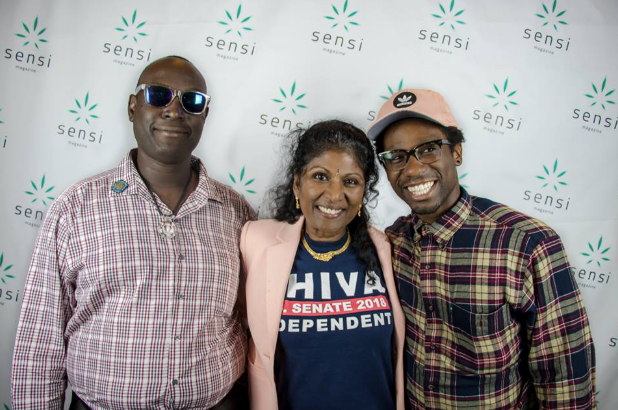 Conversations around mental health have gained significant momentum in recent years. More individuals are seeking therapy and exploring various treatment options to address past traumas and emotional distress. However, the reliance on psychiatric drugs has raised concerns about potential side effects and dependency issues. As societal perceptions evolve, marijuana therapy emerges as a viable alternative, offering holistic healing without the adverse effects associated with some psychiatric medications.
Conversations around mental health have gained significant momentum in recent years. More individuals are seeking therapy and exploring various treatment options to address past traumas and emotional distress. However, the reliance on psychiatric drugs has raised concerns about potential side effects and dependency issues. As societal perceptions evolve, marijuana therapy emerges as a viable alternative, offering holistic healing without the adverse effects associated with some psychiatric medications.
The Rise in Therapy and Psychiatric Drug Use
Mental health awareness has led to a notable increase in individuals seeking therapeutic interventions. In 2022, approximately 55.8 million Americans received counseling or mental health treatment. This reflects a growing acceptance of therapy as a means to address issues such as anxiety, depression, and stress.
Concurrently, there has been a surge in psychiatric medication prescriptions. For instance, psychiatric medication prescriptions for college students have been rising since 2007, with approximately 17% of college students prescribed medication for a mental health issue. While these medications can provide relief, they often come with side effects and the risk of dependency.
The Impact of Trauma on Overall Health
Traumatic experiences, whether acute or chronic, can profoundly affect an individual’s physical and mental well-being. Conditions like Post-Traumatic Stress Disorder (PTSD) manifest through symptoms such as anxiety, insomnia, and emotional numbness. These symptoms can disrupt daily routines, leading to unhealthy eating and sleeping patterns, increased substance use, and engagement in detrimental relationships.
Traditional psychiatric drugs, while beneficial for some, may not address the root causes of trauma and can introduce additional challenges, including side effects and dependency. Moreover, societal stigma surrounding mental health treatments can deter individuals from seeking help, perpetuating cycles of distress.
The Potential of Marijuana Therapy
In states where marijuana is legal, there lies an opportunity to explore its therapeutic benefits as an alternative to conventional psychiatric drugs. Preliminary research suggests that cannabis may alleviate symptoms of anxiety, depression, and PTSD by interacting with the body’s endocannabinoid system, which regulates mood and stress responses.
Conducting comprehensive studies comparing the efficacy of cannabis to traditional psychiatric medications could provide valuable insights. Such research should assess biological outcomes, economic implications, social perceptions, and environmental impacts to offer a holistic understanding of marijuana therapy’s potential benefits and drawbacks.
Advocating for Accessible Cannabis Therapy
Access to alternative treatments like cannabis is crucial, especially for communities disproportionately affected by mental health issues and systemic inequalities. Concerns about the long-term effects of psychiatric drugs underscore the need for diverse therapeutic options. Advocates argue that individuals should have the autonomy to choose treatments aligning with their personal and cultural beliefs, promoting a more inclusive approach to mental health care.

Understanding the Risks of Psychiatric Drugs
It’s essential to be informed about the potential side effects of psychiatric medications. While many individuals benefit from these drugs, others may experience adverse reactions or develop dependencies. Notably, substances classified under Schedules I and II, excluding marijuana, carry a risk of fatal overdose. As Dr. Uma Dhanabalan aptly states, “No one has ever died from cannabis.” This highlights the relative safety profile of marijuana compared to other controlled substances.
Integrating Cannabis into Mental Health Treatment
Recognizing the therapeutic benefits of cannabis necessitates a shift in societal attitudes and medical practices. While social equity initiatives in the cannabis industry have made strides, integrating cannabis into mainstream mental health treatment requires further advocacy and research. This transition involves addressing legal barriers, educating healthcare providers, and conducting rigorous studies to establish standardized treatment protocols.
Conclusion
As we navigate the complexities of mental health treatment, it’s imperative to consider and research alternative therapies like marijuana. Empowering individuals with choices in their healing journeys fosters a more compassionate and effective mental health care system. By embracing diverse therapeutic options, we can better address the nuanced needs of those seeking relief from trauma and emotional distress.
Note: This article is for informational purposes only and does not constitute medical advice. Consult with a healthcare professional before making any changes to your treatment plan.
Sources
- Therapy Statistics: The Impact Of Mental Health Care In The U.S.A., Better Help
- Number of U.S. adults who received mental health treatment or counseling in the past year from 2002 to 2023
- Mental Health Statistics, The Zebra
- 81 Statistics on therapy and mental health treatment in 2024
- APA, Mental health care is in high demand. Psychologists are leveraging tech and peers to meet the need
- Pew, America’s Mental Health Crisis
- Psychiatric medication prescriptions increasing for college students above and beyond the COVID-19 pandemic
- TIME, America Has Reached Peak Therapy. Why Is Our Mental Health Getting Worse?
- JAMA Psychiatry Lifetime Incidence of Treated Mental Health Disorders and Psychotropic Drug Prescriptions and Associated Socioeconomic Functioning
- Mental Health Treatment Among Adults: United States, 2019
- Mental Health Treatment Among Adults: United States, 2020
- National Institute of Mental Health, Mental Illness
- National Institute of Mental Health Psychotherapies
- Mental Health by the Numbers
- Key Substance Use and Mental Health Indicators in the United States
